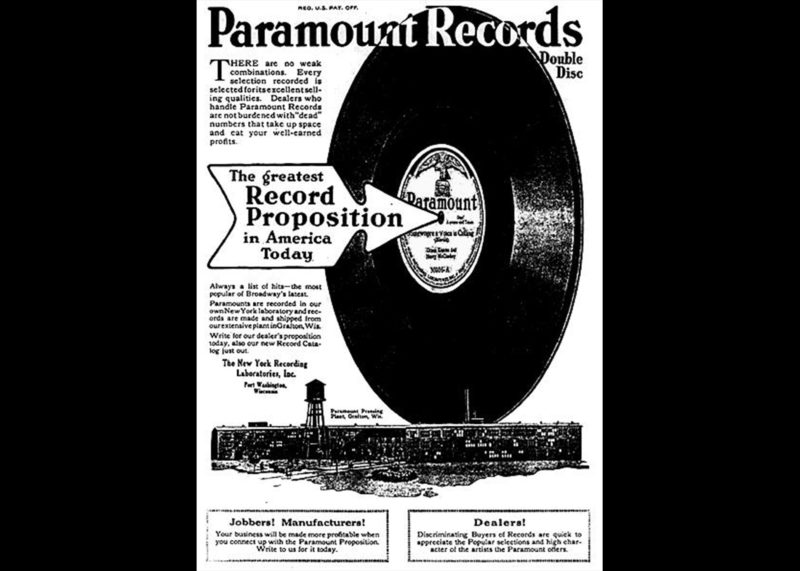To sell phonographic cabinets, a furniture business in Port Washington decided to start a record label. It became one of the leading producers of blues records in the 1920s and made pioneering recordings of some of the nation’s great musicians, including Louis Armstrong and Ma Rainey. Sergio González, an assistant professor of history at Marquette University, brings us the story of Paramount Records on behalf of the Wisconsin 101 project.
==
The Wisconsin Chair Company was originally created in the 1880s to manufacture and sell chairs and other home furnishings. By the end of the 19th century, it was the largest employer in Port Washington and at its height, employed one-sixth of the population of Ozaukee County.
The company decided to enter the growing phonograph market in 1916 with production of phonograph cabinets. They decided to make records to go with those cabinets soon after, incorporating the name Paramount Records in 1917.
In its early years, Paramount recorded a wide variety of records, including music popular within ethnic immigrant communities (especially from southern and eastern Europe), orchestral pieces, and comedic presentations by vaudeville performers. These productions were not very successful, however.
But the company found success in the early 1920s when they hired J. Mayo Williams and tapped into the growing African American customer base. Williams was a journalist in Chicago who proved very adept at recruiting talent in the south to come north to Wisconsin to record. Thanks to the recruitment efforts of Williams, Paramount became the premier record label producing music for black audiences, specializing in the blues craze of the mid 1920s.
With a roster that included Louis Armstrong, Jelly Roll Morton, Ma Rainey, and Ethel Waters, Paramount Records became one of the nation’s most important blues recording studios. Williams’ most important discovery was Blind Lemon Jefferson, who produced such hits as “Long Lonesome Blues” and “Piney Woods Money Mama.”
The caliber of the talent was not matched by the studio. Most of the employees were poorly trained and were instructed to focus on efficiency in order to create a cheap product that didn’t stand the test of time. Records produced by Paramount were known for their poor sound quality.
Paramount faced growing competition from other studios and new technology in the late 1920s. That and the Great Depression led Paramount to close its doors in 1935.
This story was produced in partnership with Wisconsin 101, a collaborative project to share Wisconsin’s story in objects.
(This story originally aired on January 27, 2017.)








